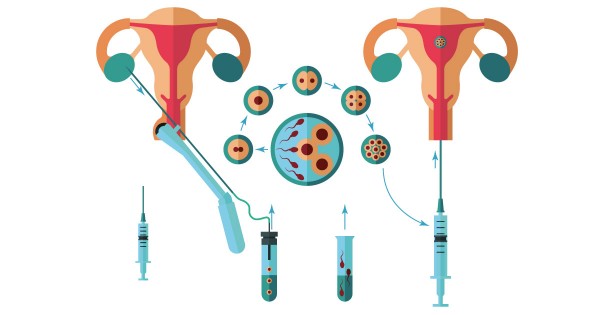In this article, we will focus on the various medical interventions available to treat infertility if you are still unable to conceive after a year of trying.
Taking the first step
Before starting treatment for infertility, it is important to discuss with your spouse how far you wish to go. For instance, you may want to try medicine but not surgery. Take note that infertility treatment can be expensive, so find out how much medicines and procedures cost. There may be several risk factors and complications to consider when looking at different fertility treatments.
Treating the problem
Treatment of infertility depends on the cause, how long you’ve been infertile, both partners’ age, and various personal preferences. Infertility can be treated with medicine, surgery, artificial insemination, or Assisted Reproductive Technology (ART).
- Treatment for men
- Sexual problems
- Lack of sperm or sperm movement
- Hormone imbalance
- Treatment for women
- Ovulation troubles
- Blocked or damaged tubes
- Unexplained infertility
- Endometriosis
Dealing with infertility problems in men include treatment for:
Many cases of male sexual dysfunction can be corrected by treating the underlying physical or psychological problems. Treatment for impotence or premature ejaculation can be helped with the use of medicines, behavioural therapy, or hormone supplementation (testosterone replacement therapy).
A semen analysis will be done to see whether the sperm are healthy and if the sperm count is sufficient. If sperm count is low or the semen has no sperm because of a block in the man’s system, then surgery can be used to correct the problem. In some cases, doctors surgically remove sperm directly from the male reproductive tract for the purpose of insemination.
In rare cases like this, treatment with medicine or hormones can help normalize sperm production in men.
Approaches that involve female infertility issues include treatment for:
Fertility drugs are the main treatment for this problem as they work like natural hormones to stimulate the ovaries to release eggs and trigger ovulation. If you have a condition called polycystic ovary syndrome (PCOS), doctors may give you fertility drugs or do a Laparoscopic surgery such as ovarian drilling (creating holes in the thickened outer shell of the ovary to allow ovulation). If medicines don’t work, the next step is hormone injection which involves a series of daily shots at the beginning of your menstrual cycle. There may be a few side effects, thus as with any treatment it must be discussed with your doctor.
If the doctor finds that your fallopian tubes are slightly blocked or damaged, thus preventing the egg from being fertilized by the sperm, he or she may recommend tubal surgery to try to correct the damage. For severe blockages, doctors may recommend skipping tubal surgery and having In-vitro fertilisation (IVF) instead. This may require removal of the tubes first.
If the doctor is unable to find out the cause of the infertility, then fertility drugs or hormone injections may be used to treat this problem. However, at this stage, doctors may recommend artificial insemination i.e. putting the sperm directly into the uterus to improve your chances of pregnancy.
If your infertility is caused by endometriosis (the growth of endometrial tissue in other parts of the body), the doctor may use medicines or do a Laparoscopic surgery to remove the endometrial tissue growth. If surgery does not work, or if you have severe endometriosis, you may want to consider ART.
Other treatment options
Other treatment options that you can consider if medicines or surgery do not work include:
- Intra-Uterine Insemination (IUI) – This procedure places specially washed sperm of the husband directly into the uterus through the neck of the womb as an out-patient. The cost of IUI is much lower than IVF.
- Assisted Reproductive Technologies (ART) – This includes IVF (In Vitro Fertilization), Gift (Gamete Intra-Fallopian Transfer), Zift (Zygote Intra-Fallopian Transfer) and Icsi (Intracytoplasmic Sperm Insemination). IVF is the most common form of ART in use today.
Before deciding on any infertility treatments, it is advisable that you and your spouse seek the advice of a medical professional. Most couples begin by seeing an obstetriciangynaecologist. Because infertility is a highly technical field of medicine, talk with your doctor about whether you should see a specialist.
Information on fertility can also be accessed from Obstetrical and Gynaecological Society of Malaysia (OGSM) website: www.ogsm.org.my







Comments